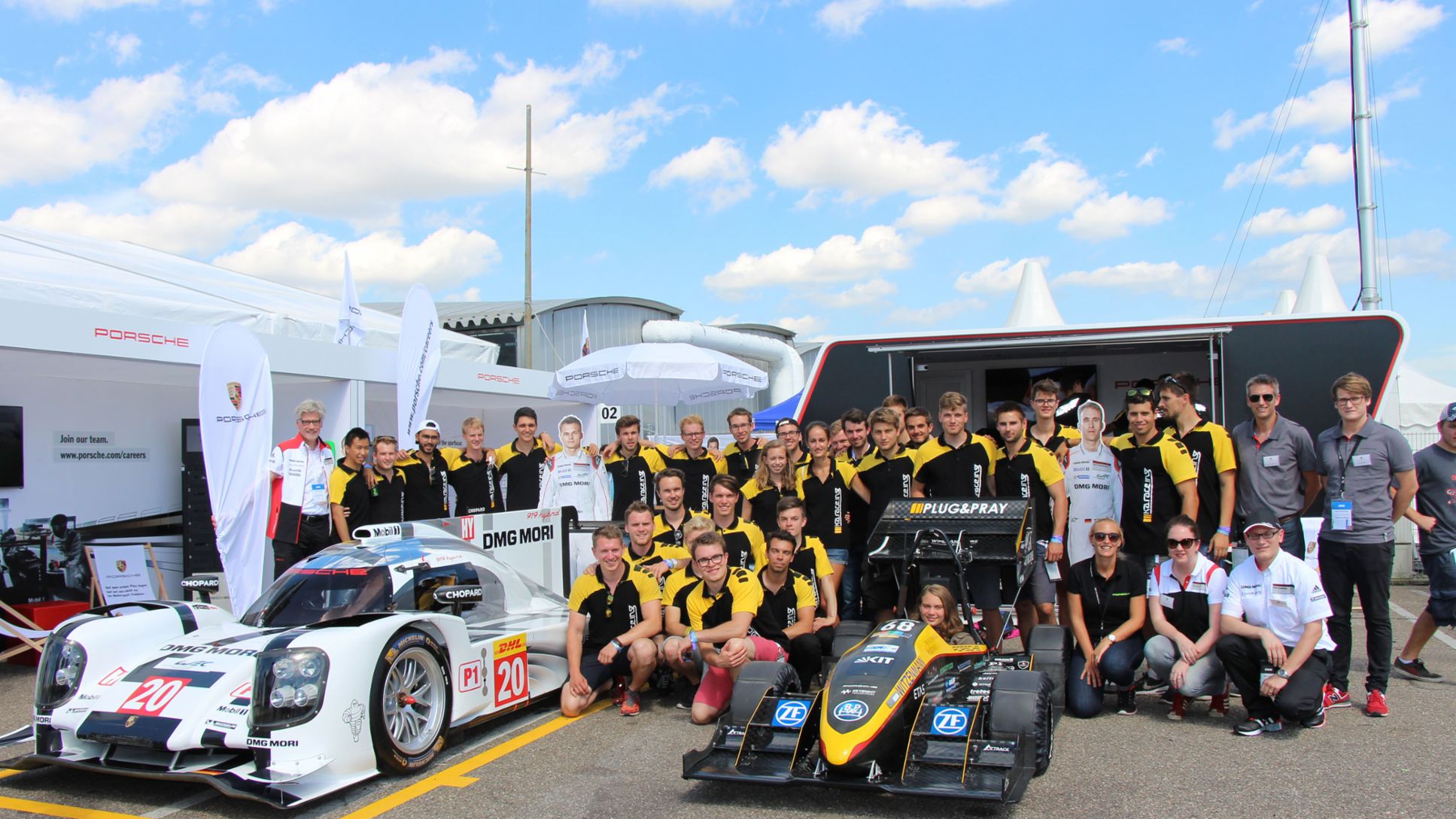Three of the six teams supported by Porsche achieved a place on the podium with their self-constructed racecar. The very first “Porsche Performance Innovation Award” went to the “Fast Forest” team from Deggendorf Institute of Technology for the innovative solutions they put in place for their all-wheel-drive electric vehicle.
Formula Student Germany is an important event in the calendar that sees young talent come together with experts from the automotive industry. “The attitude and passion displayed by the students at the Formula Student competition is truly unique”, says Christoph Welz, Manager of Employer Branding at Porsche. “What’s more, the students are able to grapple with the topics of the future at an early stage. We also benefit from interacting with these talented young people.”
The student teams were initially split into three categories: Some 75 teams were put into the Formula Student Combustion (FSC) category for combustion engines, while 40 teams were put into the Formula Student Electric (FSE) category for electric drives. Formula Student Germany also included the autonomous driving concept in the competition this time – the first time it has done so. However, this year’s Formula Student Driverless Concept Award (FSD) focussed solely on the best concepts, and not yet on the practical implementation.
Porsche-Teams rank among the best
This year, Porsche Employer Branding took to the event with a particularly inviting information stand in the form of a pit lane, complete with the Porsche 919 Le Mans racecar. The participants made great use of the pit stop, with conversations on topics ranging from sportscars to career opportunities. The colleagues from Porsche were particularly pleased that some of the student teams that received financial support and expert advice from Porsche finished right near the top in the overall standings. The racing team from Stuttgart University secured second place among competitors in the combustion engine category (Formula Student Combustion). The KIT KA-RaceIng team secured first place overall in the electric drives category (Formula Student Electric), while the Greenteam from Stuttgart University achieved third place in the same category.
